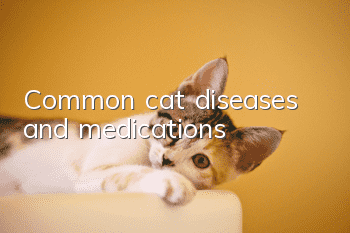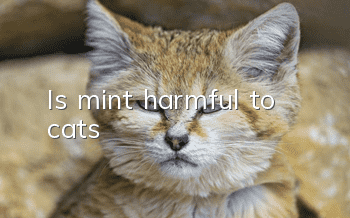Common cat diseases and medications

Common diseases and medications in cats
1. Ear mites
Symptoms: The ears have a peculiar smell and a sour smell, and are dark brown or brown in color. Blood, the cat kept scratching its ears and shaking its head.
Treatment method: To treat ear mites, you can choose ear drops containing permethrin, neomycin sulfate, triamcinolone acetonide and other ingredients.
2. Symptoms of cat ringworm: The most common parts of cat ringworm are on the face, trunk, limbs and tail, with round or oval ringworm spots, gray scales, and erythema or scab. After the scales fall off, bald spots are formed, the coat is rough, and the coat in the ringworm spots falls off.
Treatment methods: Cat ringworm is mainly treated with drugs containing terbinafine, itraconazole and other ingredients.
3. Itching symptoms: cat ringworm (fungal infection), fleas, abscesses caused by bites or scratches, food allergies, nutritional deficiencies, mange disease, hair loss in the affected area, and mite infection. Regular shape, red skin, rash-like nodules, and yellow scabs on the surface. In severe cases, the skin becomes thickened and cracked.
Treatment method: Pointe's chlorpheniramine maleate tablets are very effective in treating itching symptoms caused by cat eczema caused by fungal infection or atopic dermatitis caused by allergies.
4. Symptoms of parasitic infection: weight loss, vomiting, diarrhea, soft stools or even blood in the stool, elevated body temperature, etc. If you look through the fur, you can see worms or parasite feces, the cat may have abnormal symptoms. Scratching behavior.
Treatment methods: Medications include Da Chong Ai, Ai Walker, Beline, Fulien, etc. However, before use, you must understand the external and internal anthelmintic drugs and the anthelmintic spectrum of the anthelmintic drugs, and give them on time. Cats should be dewormed internally and externally.
5. Symptoms of cat plague: body temperature rises above 40°C, habitual vomiting, yellow-green vomitus, sticky secretions in the mouth, eyes, and nose, and may also have symptoms of blood in the stool, etc.
Treatment method: Give the cat anti-inflammatory drugs, montmorillonite powder (to treat diarrhea), glucose (to prevent dehydration), probiotics, etc. The mortality rate of feline distemper is very high. The cure depends on the cat's own immunity. If feline distemper occurs, it is recommended to seek medical treatment in time.
- Are most white cats with blue eyes deaf?
- What should I do if my cat doesn’t sleep in the nest?
- Cat suddenly vomits undigested cat food
- How long does a 3-month-old kitten sleep a day?
- Can cats eat walnuts?
- Why does a cat meow at night instead of meowing during the day?
- What cats are suitable for cage keeping?
- Is it illegal to keep leopard cats? Do you know the living habits of wild leopard cats?
- What causes cats to urinate randomly?
- What to do if a cat has diarrhea? What are the treatments for cat diarrhea?



